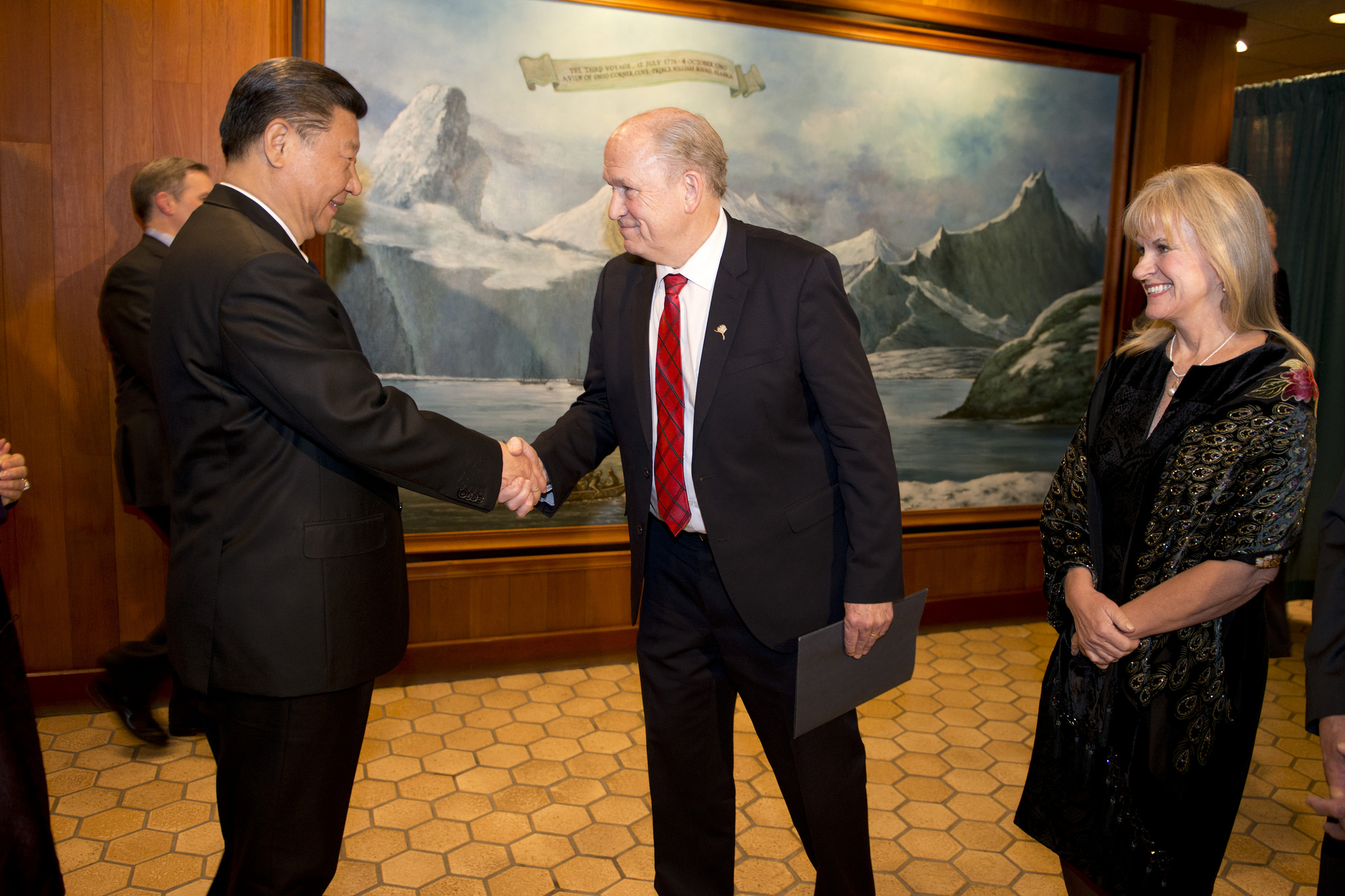Alaskans try for damage control as U.S.-China tariff dispute escalates
A U.S. trade war with China could hurt efforts to build an Arctic natural gas line and harm Alaska's growing seafood exports there.

A Washington, D.C. trip that Gov. Bill Walker had scheduled to help promote North Slope natural gas development has taken on a new urgency now that U.S.-China trade tensions escalate.
In response to tariffs imposed by the Trump administration, along with additional tariffs threatened, China has announced a series of tariffs of its own on various U.S. products, including Pacific Northwest seafood.
Now, as he heads to the World Gas Conference, to be held June 25 through 29, Walker said he is planning some extra meetings to help defuse trade tension and “avoid an unnecessary trade war.”
“Alaska has abundant resources, from natural gas and seafood to beer and baby food. These resources enable our state to dramatically reduce the trade deficit between the United States and China, if we can finalize agreements to increase exports of our products. Trade negotiations between leaders from both countries are ongoing. I am confident that we will, in the end, embrace the opportunity for mutual economic growth that we can achieve by working together,” he said in a statement released Monday.
Walker last month led a large delegation on an Alaska trade mission to China. The Walker administration is seeking to secure China as its main market for Alaska natural gas, and it has some preliminary agreements with Chinese entities to help finance and build a long-desired project that would pipe gas from Alaska’s Arctic to tidewater in the southern part of the state, where it would be converted to liquefied natural gas and exported to Asian markets.
For Alaska’s seafood industry, which gets most of its product from the Bering Sea and which was well-represented on the Walker-led trade mission, the tariffs are also a big concern.
In a May 21 letter to Trump, the Alaska Congressional delegation said any escalation of tensions that affects Alaska exports of seafood to China would be “regrettable.” Now that tariffs have been announced, Sen. Lisa Murkowski said she is trying to counter their effects. “While there are many unknowns as to the impacts of these newly announced tariffs, I urge President Trump to work towards a trade policy with China that protects these critical markets for our seafood industry,” she said in a statement.
China is Alaska’s top export market, and about half of those exports, some $1 billion worth, are seafood. The Alaska Seafood Marketing Institute, a state agency, has posted an alert on its website about the impending Chinese tariffs.
A little more than half of the Alaska seafood exported to China is processed in that country and re-exported elsewhere, said Jeremy Woodrow, ASMI’s spokesman. The organization wants to maker sure that those exports will be exempted from any new tariffs.
“We’re hopeful that the tariff won’t be changed or updated to affect the re-exports.” Woodrow said.
Even if that is the case, any remaining tariff on Alaska seafood will harm what had been a promising prospect for new sales in China, he said. “A 25 percent tariff is serious. That will affect the value of Alaska seafood in the Chinese market,” he said.
The seafood industry has been working to increase consumption within China, and a 2017 report by the University of Alaska’s Sea Grant program found that Chinese grocery shoppers, once they knew about Alaska salmon’s wild characteristics, were much more likely to buy it and view it as a desirable food.
“Chinese consumers are very responsive to information about pristine environments and ecological sustainability,” the report said.
The Alaska oil and gas industry also has concerns.
The Trump administration’s tariffs on imported steel complicate prospects for the North Slope natural gas project. They are expected to jack up the costs of the project, which already has an expected $43.3 billion price tag.
Jesse Carlstrom, spokesman for the state-owned Alaska Gasline Development Corporation, said the hope is that Alaska-China ties already cultivated will be strong enough to withstand the tariff fight.
“Even though at the national level the ongoing trade tensions create concern, on the level that we’re dealing with in our personal relationships and business relationships as they relate to Alaska LNG remain strong,” he said.
The tariffs are bad for the oil industry in general, not just in Alaska, said BP’s top official for the Americas.
“Certainly tariffs could be very costly for U.S. projects,” Susan Dio, BP’s chief executive for the Americas, told reporters after a June 20 speech she delivered in Anchorage to the Resource Development Council for Alaska.